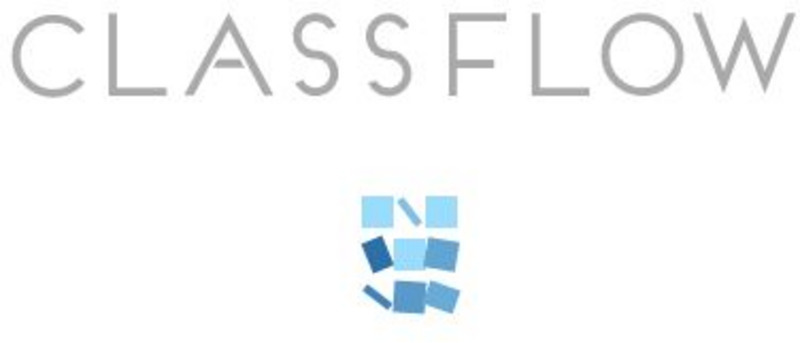Curated OER
Opening a Special Ed Class
This is not just a lesson plan, it's a life saver! Here are 10 separate documents intended to assist a new Special Ed teacher. There are 4 different games, instructional tips, ways to handle documentation, behavioral modification...
Curated OER
Reinforcement: Point/Sticker Cards
I love these! Print, cut, and laminate any of these sticker cards to help you manage classroom behavior in a positive way. Tape the blank chart on your learner's desk,or reward him by giving a point or sticker in each of the squares....
Curated OER
Special Education Students in the Mainstream Classroom
How to prepare your mainstream students for a special education student in their classroom.
Curated OER
Special Accommodations
This accommodations template provides a checklist of special accommodations that may be required for special needs learners in six areas: attention, academic, behavior, testing, speech/language, and OT/PT. Space is also provided for...
Free Printable Behavior Charts
How Do I Respond?
Help your learners respond to feelings of anger appropriately by working with them to brainstorm fitting responses to stressful situations. This organizer includes a list of anger-causing situations paired with images, a column for an...
Missouri Department of Elementary
How Do I Act Like a Friend?
Familiar puppets set the stage for a thoughtful discussion about friendship. To show what they know, scholars role-play scenarios. Peers offer a thumbs up when they view positive character traits exhibit good friend behavior.
Curated OER
Weekly Progress Report
When we have learners with behavioral or special needs in is extremely important to be able to communicate effectively with parents at home. Here you'll find an A to Z checklist for you to fill out during the week. As behaviors occur,...
Curated OER
Bonus Reinforcement System
While this resource is specific to one autistic learner, it may serve to assist you with developing a similar behavior modification system in your class. The resource includes a full rationale for the use of the system and the printable...
Curated OER
Calm Down Visual Cards
Associating a concept with a visual cue or reminder can be a highly effective learning tool for some Autistic or special needs pupils. This template includes images that are associated with specific techniques for calming down. The...
Positively Autism
Please Wait to Ask Questions
Learning to wait, though difficult, is an important social skill. Here are two cards that will help kids learn when it is okay to ask questions and when they must wait.
Curated OER
Line Up Balls
At times special needs or Autistic children have a difficult time disengaging from a lesson to line up at the door. This brief strategy overview employs mini-porcupine balls and a pocket. It was developed to help pupils...
Missouri Department of Elementary
What Is Comfortable and Uncomfortable Touch?
Two stuffed animals open a lesson that examines two types of touch. Scholars discuss the difference between comfortable and uncomfortable touch. They offer examples then brainstorm ways an individual can keep safe from uncomfortable...
Curated OER
Using Poetry in Teaching Reading to Special Education Students
A series of well-written activities, these lessons prompt middle schoolers reading below grade level (at a second, third, or fourth grade level) to use poetry to practice basic reading skills. They rhyme, build words, make inferences,...
Missouri Department of Elementary
How Does a Friend Act?
Two puppets showcase social skills while scholars decide whether their actions are positive or negative. Learners take turns with the puppets, acting out scenarios with a peer while the rest of the class decide if they're being a good...
Missouri Department of Elementary
How We Are Alike And Different
Scholars develop social awareness by exploring the concept of similarities and differences. Learners examine two beverages and use a Venn diagram to identify similarities and differences. They tally each item to identify if they are more...
Missouri Department of Elementary
Feeling Faces
A lesson help scholars identify emotions through facial expressions. After a friendly puppet reads scholars a poem all about feelings, learners act out how they would feel when a specific action happens to them. Participants watch and...
Missouri Department of Elementary
How Families Change
Changes in the family such as a new baby, divorce, a new job, or death are the focus of a lesson that examines how every family is different. Scholars draw a picture of their family then share the changes that have occurred within it....
Missouri Department of Elementary
Other Changes (Life-Changing Events Outside of the Family)
Change is inevitable. Kindergarteners discuss coping skills to properly manage changes that can occur outside the family. Scholars reflect on their life changes after starting kindergarten. They discuss their feelings and draw a...
Missouri Department of Elementary
What Are Safe and Unsafe Drugs/Medicines/Objects?
Encourage responsible decision-making while boosting sorting skills with a lesson that looks at safe and unsafe situations. Scholars use two bags, one happy the other sad, to sort scenario cards. After a thorough examination,...
Curated OER
Speech/Language Scavenger Hunt
A good idea. To build both speech and social skills special ed young scholars go on a scavenger hunt. They locate people around the school and say a series of words, when they say the words correctly they receive a prize. They also ask...
ClassFlow
Class Flow: Now You're in Kindergarten
[Free Registration/Login Required] This flipchart helps kindergarten students develop classroom rules, safety procedures and social skills. An introductory web link with animated video content gives examples for students. Templates for...
National Institutes of Health
National Institute of Mental Health: Attention Deficit Hyperactivity Disorder
This common term used in classrooms is reviewed in this information from the NIMH and points to the changing views of many that it is better treated long term with behavioral therapies than medications.























